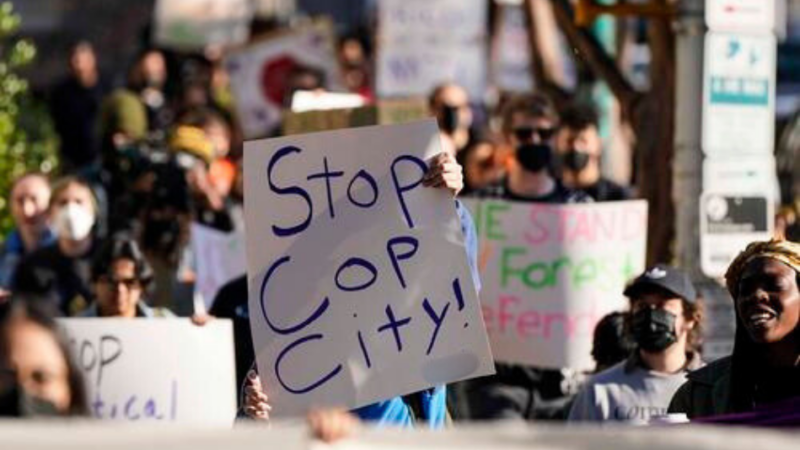‘Baby Reindeer’ is an Emmy favorite — and facing a lawsuit at the same time
Netflix’s darkly comic Baby Reindeer was one of the breakout hits of 2024. It’s an Emmy favorite, with 11 nominations ahead of Sunday night’s awards, including for best limited or anthology series. But it’s also in the midst of a legal battle, brought on by a woman who believes she inspired a main character in the show.
Scottish comedian Richard Gadd, wrote, starred in, and executive produced the series, which he first developed for the stage. In Baby Reindeer, which spent three weeks as the top English-language TV show on Netflix this spring, he relates his experiences of being a struggling standup comic and bartender, stalked by a woman named Martha. In the story, they meet at a London pub where he works. She flirts with his character, Donny Dunn, and calls him her “baby reindeer” in a series of emails, DM’s and voicemails.
In a video for Netflix and in statements to the media, Gadd has said the story is autobiographical, and that he went to great lengths to disguise the real-life identities of the characters. In the show, he depicts his own tortured history and behavior, and shows Martha sexually assaulting him and attacking his lover. On-screen, Martha is portrayed as a convicted stalker who’s spent time in prison.
The ‘real’ Martha?
After Baby Reindeer began streaming, a Scottish woman named Fiona Harvey claimed the character Martha was based on her. On the TV show Piers Morgan Uncensored in May, Harvey called the show “obscene,” and “a work of fiction, it’s a work of hyperbole.” She said she did meet Gadd a few times, but never sent him as many messages as Martha did in the show; she said she did have a toy reindeer, but “it was a joke.”
She’s suing Netflix for $170 million for defamation and has asked for a jury trial in California. Central to the lawsuit, filed in June in the Central District of California, is the fact that Baby Reindeer labels the show’s events a “true story” in the first episode — which the suit argues is “the biggest lie in television history.” Harvey claims, among other things, that she’s never been convicted of a crime and never sexually assaulted Gadd.
As a result of being depicted and “defamed” in Baby Reindeer, Harvey “was immediately identified by members of the public and received hate mail and death threats so intense that Harvey suffers from insomnia, panic attacks, and has a general fear of going outside,” according to a plaintiff’s statement in a recent filing in the case.
Netflix, which distributed the series, told NPR in a statement that the network intends to “defend this matter vigorously and to stand by Richard Gadd’s right to tell his story.”
Questions about the character — even before the lawsuit
Even before Harvey’s lawsuit, the character of Martha seemed to be raising questions. In May, Netflix’s Senior Director of Public Policy, Benjamin King, told the U.K.’s Culture, Media and Sport Select Committee that Martha was based on a “convicted stalker” – but later wrote to the committee chair to clarify: “The person on whom the show is based – who we have at no point sought to identify – was subject to a court order rather than a conviction.” According to a Netflix spokesperson, this letter “does not impact our legal position.”
Though Baby Reindeer‘s first episode opens by calling the show a “true story,” each episode includes a line in the credits noting that, “This program is based on real events: however, certain characters, names, incidents, locations, and dialogue have been fictionalized for dramatic purposes.”
Gadd submitted a written declaration in July saying that the series is a fictionalized retelling, not a documentary.
The network’s attorney Marvin Putnam filed a statement in court that while Baby Reindeer “is inspired by Gadd’s real-life trauma and emotions, the characters, scenes, dialogue, and events convey Gadd’s story in an imaginative style.”
In the latest court filings, Putnam wrote, “Harvey did, in fact, harass and stalk Gadd in real life. She sent him thousands of emails, handwritten letters, and social media posts, and left him hours of voicemails. Many of those communications, which Gadd provided to the police, included prurient, violent and astoundingly racist, xenophobic, homophobic, and otherwise hateful content.”
Netflix’s motions to strike and dismiss the lawsuit are still pending before the court.
GPB evening headlines for September 18, 2024
Prosecutors have dropped some charges against three people indicted in connection with Atlanta police training center protests. The two candidates for district attorney in Savannah's Chatham County clashed over experiences and records in a forum this week. Georgia's Supreme Court is rejecting an effort to force new Republican primary elections in northwest Georgia's Catoosa County.
Forget tedious paper applications, Americans can now renew passports online
The State Department announced Wednesday that its online renewal system is now fully operational, after testing in pilot programs, and available to adult passport holders whose passport had expired within the past five years or will expire in the coming year.
Vance says Haitian migrants with protected status are ‘illegal aliens’ to be deported
The Republican vice presidential nominee continues to rail against Haitian migrants living in Ohio, though many have Temporary Protected Status, as the GOP escalates its hardline immigration stance.
The latest on the Land Back movement, in which Native American tribes reclaim land
The Land Back Movement is an effort by native Americans to reclaim lost land. Two reporters take a look at where it’s worked and where it hasn’t at reservations in Minnesota.
What the upcoming election looks like for Georgia GOP chairman Josh McKoon
NPR's Mary Louise Kelly talks with Georgia Republican Party chair Josh McKoon in Atlanta ahead of the 2024 presidential election.
Congress votes down spending bill as government shutdown looms
Congress is running out of time to avert a government shutdown. House Republicans will put up a partisan proposal that does not even have enough votes within their own party.



